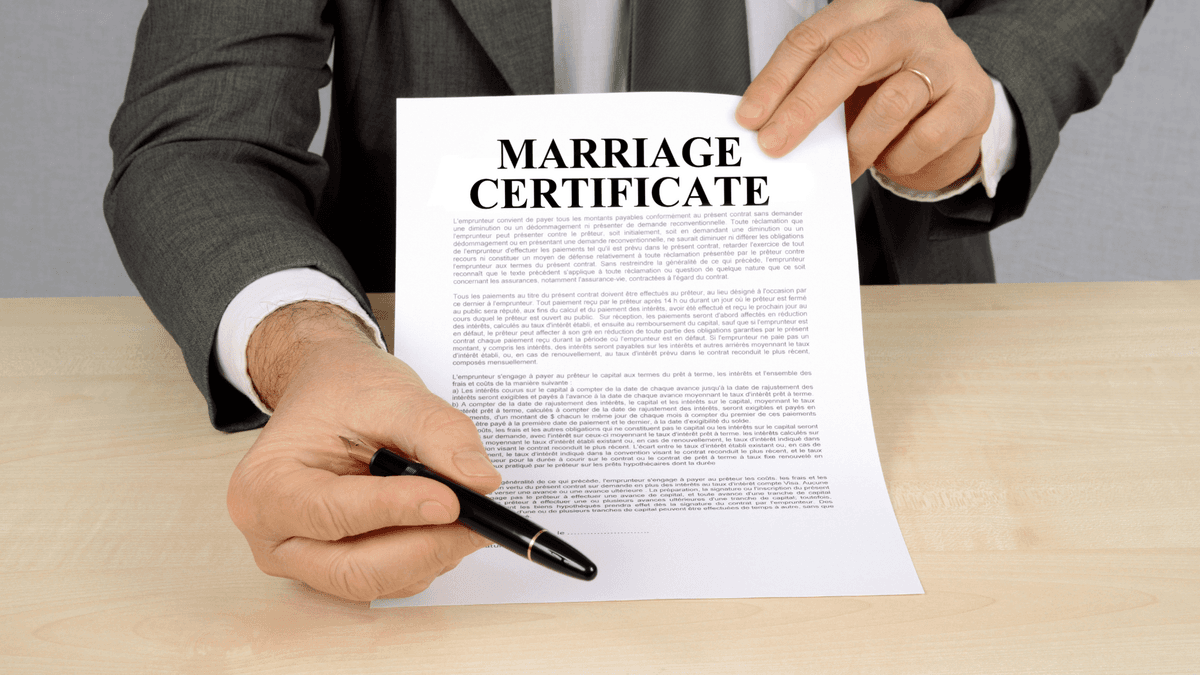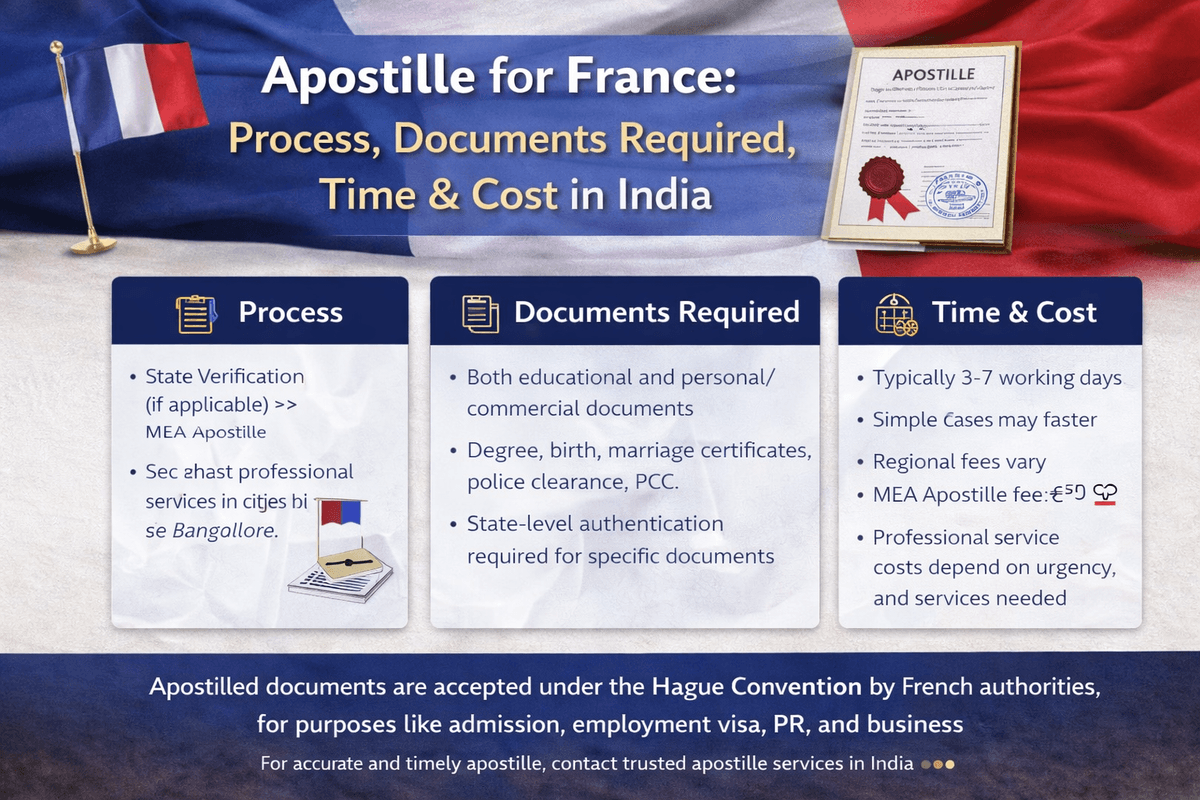
Apostille vs. Embassy Attestation for European Countries in India
When it comes to the validation of documents for international purposes, particularly for travel, education, employment, or immigration, two primary processes are followed in India: Apostille and Embassy Attestation. Understanding the difference between the two is crucial for individuals planning to use Indian-origin documents in European countries. In this comprehensive guide, we explore the key distinctions, processes, and scenarios where Apostille or Embassy Attestation may be required, with a particular focus on European countries.
Understanding Apostille and Embassy Attestation
Apostille is a simplified method of document authentication used among the member countries of the Hague Convention of 1961. India is a member of this convention, and many European countries such as Germany, France, Italy, Spain, and the Netherlands are also part of this treaty. The Ministry of External Affairs (MEA) in India provides Apostille services through authorized agencies. MEA Apostille in India is typically sufficient for documents intended for use in these member countries.
Embassy Attestation, on the other hand, is a more detailed process required for countries that are not part of the Hague Convention. It involves validation of documents by the respective embassy or consulate of the destination country after MEA attestation. Embassy Attestation in India is mandatory for non-member countries or where additional legalization is required despite being part of the Hague Convention.
MEA Apostille in India: The Process
The process of obtaining MEA Apostille in India is streamlined and involves fewer steps compared to embassy attestation. Here is how the process typically works:
Pre-authentication: Documents are first verified by the relevant state authority. For example, educational certificates are authenticated by the HRD department, while personal documents like birth or marriage certificates are verified by the State Home Department.
MEA Apostille: Once pre-authenticated, the documents are submitted to the Ministry of External Affairs, which provides an Apostille sticker on the reverse side of the original document. This sticker includes a unique identification number, making it easy to verify online.
Use in Destination Country: Once apostilled, the document is considered legally valid in all member countries of the Hague Convention, including most European nations.
Certificate Apostille in Bangalore is widely available through government-authorized service providers. Residents in Bangalore can submit their documents to local agents who facilitate the authentication and MEA Apostille processes efficiently.
Embassy Attestation in India: The Process
For countries that require embassy legalization, the process involves multiple steps:
State Authentication: Like apostille, documents are first authenticated by the relevant state department.
MEA Attestation: Following state authentication, the Ministry of External Affairs stamps the document.
Embassy Attestation: The final step involves submitting the MEA-attested document to the embassy or consulate of the destination country for their seal or stamp.
Embassy Attestation in India is time-consuming and may vary in procedure and requirements depending on the specific embassy involved. It is often required for non-Hague countries or where diplomatic agreements necessitate embassy verification.
When to Use Apostille for European Countries
Most European countries accept MEA Apostille in India without the need for further legalization. The list includes:
- France
- Germany
- Italy
- Spain
- Netherlands
- Switzerland
- Belgium
- Sweden
- Finland
- Austria
For these countries, obtaining a Certificate Apostille in Bangalore is sufficient. It saves time and money compared to embassy attestation. Apostille is recognized and accepted by all Hague Convention signatories, simplifying international document acceptance.
When Embassy Attestation May Still Be Required
There are some scenarios where embassy attestation might still be requested, even for Hague Convention countries. These include:
- Certain universities or institutions requesting additional validation.
- Specific job roles, especially in legal or medical fields.
- Business-related documents requiring further diplomatic acknowledgment.
In such cases, Embassy Attestation in India may follow after MEA Apostille, though this is relatively rare for European countries.
Key Differences Between Apostille and Embassy Attestation
Feature
Apostille
Embassy Attestation
Treaty Requirement
Hague Convention Countries
Non-Hague Countries or specific cases
Issuing Authority
Ministry of External Affairs (India)
Respective Embassies or Consulates
Processing Time
Typically faster (3-5 working days)
Longer (7-15 working days)
Document Requirement
Original documents with prior state authentication
MEA-attested documents required
Acceptance
Accepted by Hague members
Required by non-Hague members or as mandated by institutions
Attestation in Bangalore: Local Availability and Services
Attestation in Bangalore is widely accessible through MEA-approved agencies that provide Apostille and Embassy Attestation services. These agencies assist individuals with:
- Document pickup and delivery
- Pre-verification from state departments
- MEA Apostille and Embassy Attestation
- Tracking and support services
Certificate Apostille in Bangalore is a preferred option for many residents due to the presence of professional and reliable service providers. These agencies have strong coordination with MEA and embassies, ensuring timely and error-free processing.
Cost Considerations
The cost for MEA Apostille in India is relatively low and standardized. However, embassy attestation can be significantly more expensive due to:
- Embassy-specific charges
- Translation or notarization requirements
- Courier and logistical expenses
Individuals should budget accordingly and consult with their attestation provider to get an accurate quote. Embassy Attestation in India for European countries is generally less common, thus fewer people incur these costs.
Tips for Smooth Apostille or Embassy Attestation
Verify Requirements: Check with the institution or authority in the destination country to confirm whether apostille alone is sufficient.
Use Authorized Agencies: Always choose MEA-recognized service providers for document security and compliance.
Plan Ahead: Start the process early to accommodate for any delays.
Keep Copies: Always keep scanned and physical copies of your original and attested documents.
Track Progress: Make sure your provider offers document tracking for transparency.
Whether you choose MEA Apostille in India or Embassy Attestation in India depends largely on the destination country's requirements. For most European countries, Apostille is sufficient and offers a faster, cost-effective solution. For countries requiring additional validation or where institutional mandates apply, Embassy Attestation becomes necessary.
With professional services for Certificate Apostille in Bangalore and Attestation in Bangalore, the process has become more streamlined and user-friendly. By understanding the requirements and engaging the right service providers, individuals can ensure their documents are legally recognized abroad with minimal hassle.
Choose wisely between Apostille and Embassy Attestation, and ensure your international plans proceed smoothly with properly validated documents.
- All
- Apostille
- Attestation
- Australia Apostille
- Austria Apostille
- Bahrain Attestation
- China Attestation
- Egypt Attestation
- France Apostille
- Germany Apostille
- HRD
- Italy Apostille
- Kuwait Attestation
- Lithuania Apostille
- MEA
- Malaysia Attestation
- Mexico Apostille
- Netherlands Apostille
- Nigeria Attestation
- Oman Apostille
- PCC
- Philippines Attestation
- Qatar Attestation
- Saudi Arabia Attestation
- Taiwan Attestation
- Translation
- UAE Attestation
- UK Apostille
- USA Apostille
- Vietnam Attestation
- Visa Stamping




